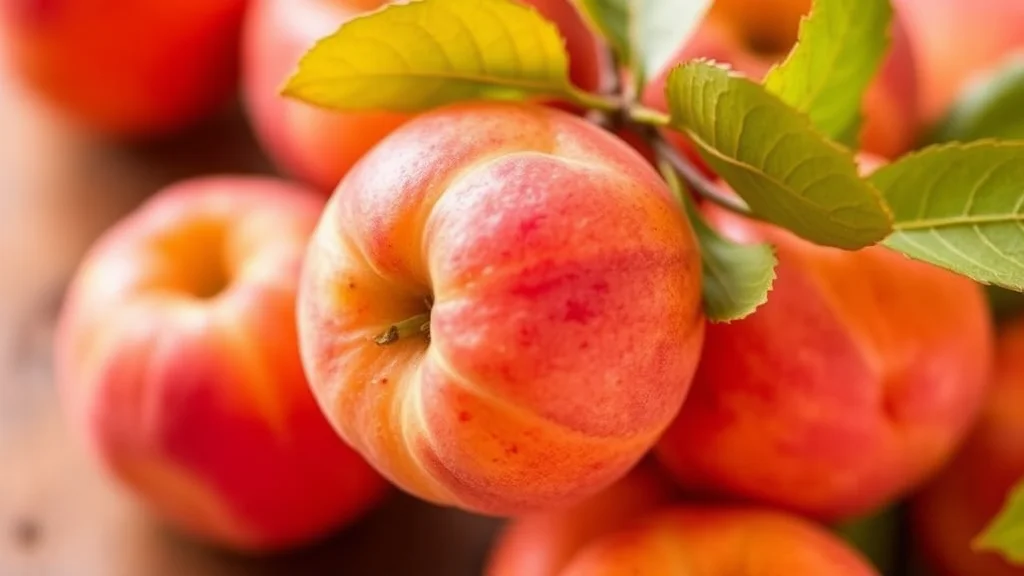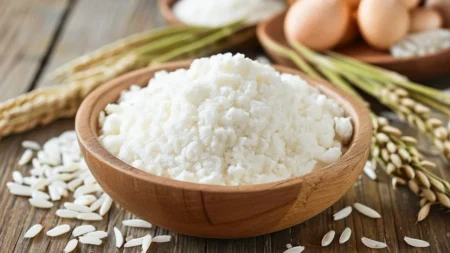Nectarines: A Juicy Fruit with Impressive Health Benefits
Key Takeaways:
- Nectarines are a delicious stone fruit that is rich in vitamins, antioxidants, and fiber.
- They offer various health benefits, including improved digestion, better skin health, and enhanced immune function.
- Nectarines can be enjoyed fresh, grilled, or incorporated into a variety of dishes and desserts.

Nutritional Profile of Nectarines
Nectarines are not only tasty but also packed with essential nutrients. Here is the nutritional breakdown for one medium-sized nectarine (approximately 150 grams):
| Nutrient | Amount |
|---|---|
| Calories | 62 kcal |
| Carbohydrates | 15 grams |
| Protein | 0.6 grams |
| Dietary Fiber | 2.2 grams |
| Fat | 0.2 grams |
| Vitamin C | 7.5 mg (8% DV) |
| Vitamin A | 285 IU (6% DV) |
| Potassium | 210 mg (6% DV) |
| Folate | 6 mcg (2% DV) |
Rich in Vitamins and Antioxidants
Nectarines are an excellent source of vitamin C and beta-carotene, both of which are powerful antioxidants that help protect cells from damage and support overall health.
Health Benefits of Nectarines
1. Supports Digestive Health
The dietary fiber in nectarines promotes healthy digestion and regular bowel movements. Fiber also helps prevent constipation and supports a healthy gut microbiome.
2. Enhances Skin Health
Nectarines are rich in vitamin C and beta-carotene, which contribute to healthy skin by promoting collagen production and reducing oxidative stress. This can help maintain skin elasticity and reduce the appearance of wrinkles.
3. Boosts Immune Function
High levels of vitamin C in nectarines help strengthen the immune system, enabling the body to fight off infections and illnesses more effectively.
Types of Nectarines
Nectarines come in various varieties, each with its own unique flavor and texture:
| Type | Description | Common Uses |
|---|---|---|
| Yellow Nectarines | Juicy with a sweet-tart flavor | Fresh eating, desserts |
| White Nectarines | Sweeter with less acidity | Salads, fruit salads |
| Donut Nectarines | Flat, with a honey-like taste | Snacks, grilling |
How to Enjoy Nectarines
1. Fresh Nectarines
Simply wash and slice nectarines for a refreshing snack or addition to salads.
2. Grilled Nectarines
Brush nectarines with a bit of honey and grill them for a caramelized, smoky flavor. They make a great topping for yogurt or a side dish for savory meals.
Nectarines vs. Peaches
Nectarines and peaches are similar but have some differences. Here’s a comparison:
| Nutrient (Per 100g) | Nectarines | Peaches |
|---|---|---|
| Calories | 39 kcal | 39 kcal |
| Carbohydrates | 9.5 grams | 9.5 grams |
| Protein | 0.9 grams | 0.9 grams |
| Dietary Fiber | 1.5 grams | 1.5 grams |
| Vitamin C | 4.6 mg | 6.6 mg |
The primary difference lies in the skin texture: nectarines have a smooth skin, while peaches have a fuzzy exterior. Both fruits offer similar nutritional benefits.
Popular Nectarine Recipes
1. Nectarine Smoothie
Blend nectarines with yogurt, a splash of orange juice, and a handful of spinach for a nutrient-packed smoothie.
2. Nectarine Crumble
Combine sliced nectarines with a crumble topping made of oats, flour, and butter. Bake until golden and serve with vanilla ice cream.
Conclusion
Nectarines are not only delicious but also a rich source of vitamins, antioxidants, and fiber. Their health benefits include supporting digestive health, enhancing skin quality, and boosting immune function. Versatile in both sweet and savory dishes, nectarines are a fantastic addition to a balanced diet.
FAQ
Q: Are nectarines good for weight loss?
A: Yes, nectarines are low in calories and high in fiber, making them a great choice for weight management.
Q: Can I eat nectarines if I have a sensitive stomach?
A: Nectarines are generally well-tolerated, but if you have a sensitive stomach, you may want to start with smaller amounts and monitor your body’s response.
Q: How can I choose ripe nectarines?
A: Look for nectarines that are slightly soft to the touch and have a sweet aroma. Avoid fruits with wrinkles or blemishes.










